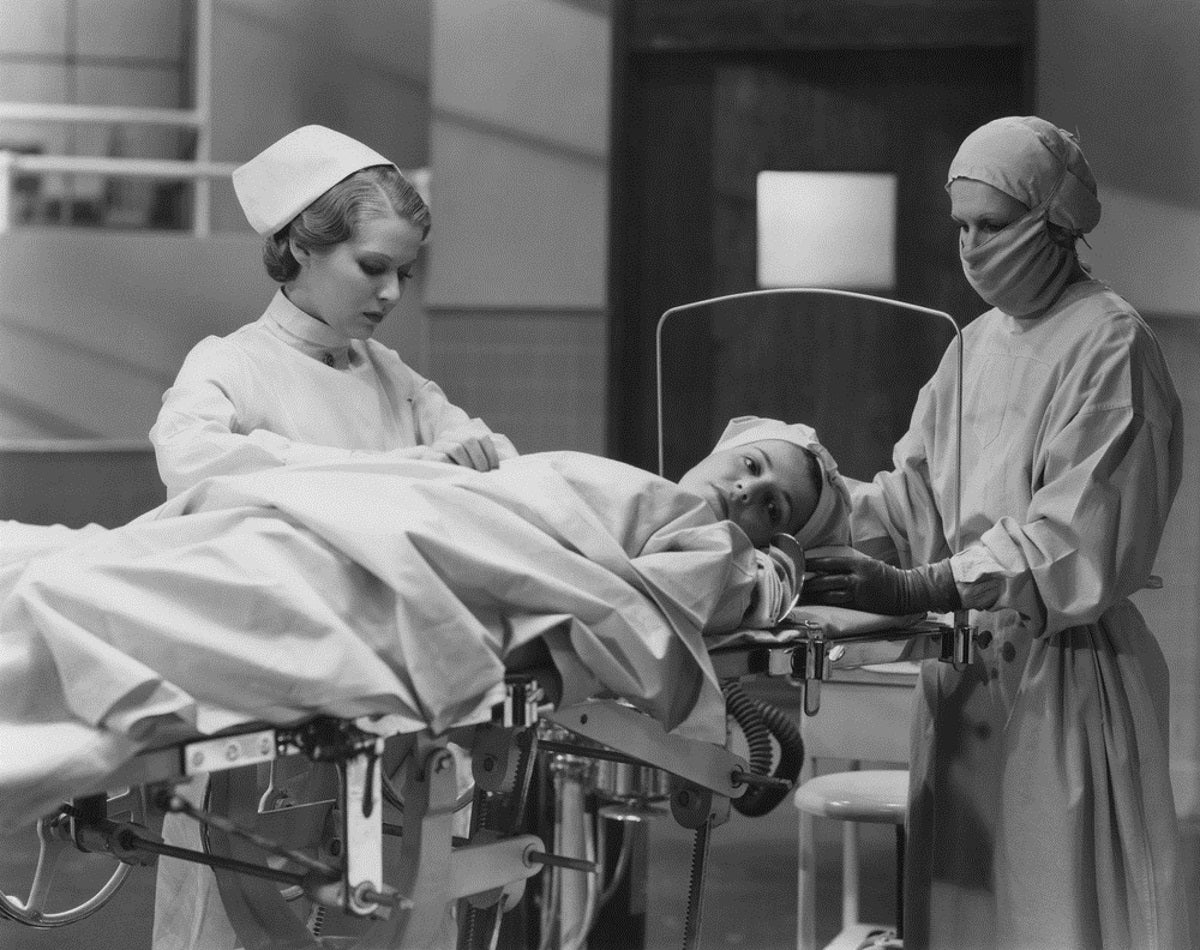Hysterectomies – The Facts You Should Know
Long ago the Ancient Egyptians and the Greeks believed that the uterus traveling to different places in the body caused female hysteria. Female hysteria was a catch all diagnosis for women who showed signs of fainting, outbursts, nervousness, irritability, lack of interest in food or sex, etc. The list for the symptoms was expansive. The cure of extreme cases of hysteria? A hysterectomy or admittance to the insane asylum. The history on the “science” of the female body is fascinating, and we are very lucky in this day and age to have such an expansive knowledge of women and the way their bodies work.
Hysterectomies have been performed for thousands of years, but the major breakthroughs and successes of the surgery happened about 100 years ago. Hysterectomies were performed in the middle ages, but were often the wrong diagnosis, and the patients rarely survived. Early procedures were performed without anesthesia with a mortality of about 70%, mainly due to infection. Can you imagine going under the knife with a 70% chance of death? Luckily, we live in an age where much more is known about science and surgery in general. Doctors are well trained and perform in a sterile environment. The survival rate today is over 99%.
The word hysterectomy stems from the Greek word “hystera” meaning womb, and ectomy meaning surgical removal, or cutting out of. Harry Reich in Pennsylvania performed the first laparoscopic hysterectomy in 1988, and the US FDA approved robotic assisted hysterectomies in 2005.
If you are in need of a hysterectomy, we encourage you to research the different procedures and we welcome any questions you may have when you come in for an examination. We feel that by the patient gaining awareness and understanding of their body, it helps them in a number of ways, including understanding why they may need a hysterectomy, what their options are, and what to expect when it comes to recovery. Sadly, many Americans do not know much about hysterectomies, or know what it is at all. Check out these facts from a study done in February of 2015 to see why hysterectomy awareness is so important.
Almost half (44%) of Americans are incorrect or do not know what procedure a hysterectomy is.
- 29% guessed incorrectly and 16% saying they were not at all sure. The incorrect response that one in four (25%) Americans selected was the removal of the ovaries. Fewer selected the removal of the appendix, breasts or gall bladder (1% each) and less than 1% selected the removal of the kidneys or tonsils. 1% said a hysterectomy was something else.
- Adults ages 18-34 (29%) are significantly more likely than those ages 35-44 (17%) to say they are not at all sure what a hysterectomy is.
- Women are more likely than men to answer correctly – 64% vs. 47%, respectively.
- Men are more likely than women to have said they were not at all sure – 22% vs. 10%, respectively.
More than half of U.S. adults know someone who has had a hysterectomy with women being more likely than men to know someone who has had the procedure.
Some women report that they feel a sense of loss after their hysterectomy. Some feel ashamed or devastated. Some feel ecstatic, and feel liberated from chronic pain, or from no longer having a menstrual cycle.
Only 10% of hysterectomies are for cancer, and a small percentage of hysterectomies performed are emergency procedures right after childbirth. But many choose to have the surgery electively. In 2014, over half of hysterectomy surgeries (53.8%) were done laparoscopically to be less invasive and have faster healing time.
Being aware of your body, and more importantly, being comfortable talking about it’s health will help you take care of yourself better and prepare you for a surgery and recovery.
With hysterectomies being the second most performed surgery on women and over 500,000 women a year in the US receiving some type of hysterectomy, it’s important that women take charge in their own health and ask the important questions they need answers to– even if they are uncomfortable to talk about with your doctor. Here are five facts you should know about hysterectomies.
- Your sex life is not over. Depending on what type of hysterectomy you’ve had (partial, total or radical) the times will vary for when it’s okay to be intimate again. Be sure to ask your doctor how long you should give yourself to heal before having vaginal intercourse.
- If you have endometriosis, a hysterectomy may not be a cure. Endometriosis is when endometrial tissue grows outside of the uterus. It can cause severe cramps and chronic pain, but removing the uterus is not a guarantee of relief from those symptoms. Check with your doctor for less invasive procedures and treatments.
- If you need a hysterectomy that includes the removal of your ovaries, you will abruptly lose the organs that create female hormones estrogen and progesterone. Ask about estrogen hormone therapy, as it may help with the transition into menopause. Discuss the pros and cons and what’s right for you.
- Less invasive surgery is possible. Many doctors no longer have to make a long cut on the abdomen to remove the uterus, and many hysterectomies today are performed laparoscopically or robotically assisted. Tiny incisions are made instead for less blood loss and shorter healing time in the hospital. If your doctor does not do minimally invasive surgeries, you may want to check with another doctor who does to see if you are a candidate.
- Emotional healing can take time. Women have had many different reactions after their hysterectomies. Some are overjoyed that their pain or cancer is gone, others mourn that they can no longer have children. Make sure you give yourself time to heal and process those emotions.
In 2005, Dr. Lynn Kowalski founded the Nevada Surgery and Cancer Center to pursue her passion of helping women fight gynecological cancers. She is a leader in hysterectomy awareness and minimally invasive surgery in the Las Vegas area. Dr. Kowalski has nearly 20 years of experience performing hysterectomies in Las Vegas, and recently celebrated the achievement of performing her 1,000 robotic-assisted surgery with the help of the Da Vinci Robotic Surgery System.
In just a short period of time, hysterectomy surgery success soared with the development of new techniques and tools. As humans we have an incredible ability to learn and grow from our past and it’s important to reflect where we’ve come in regards to the knowledge and respect for the female body. Hysterectomy awareness and women’s health awareness as a whole is far from finished, and with new science emerging every day about the human body, there’s no doubt we must continue educating ourselves about our bodies.







